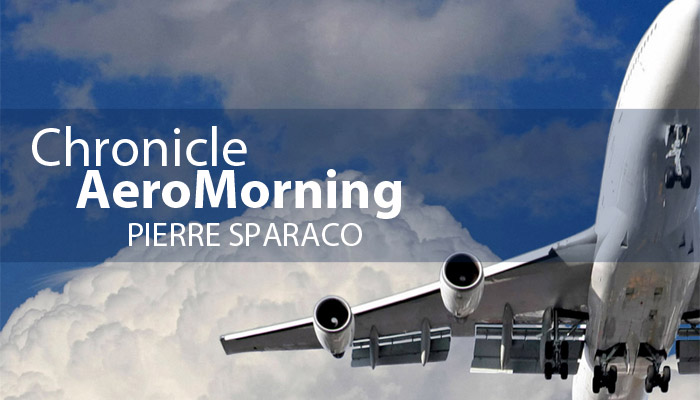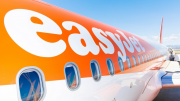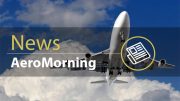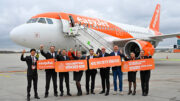The confrontation is not new, but it’s just taken on a new dimension. EasyJet founder Stelios Haji-Ioannou disagrees with the strategy of the airline he founded, to the point that he has resigned from the board of directors. This complicated Shakespearean drama probably still holds a number of surprises for us.
Chief Executive Andy Harrison will step down in a few days. He has already been replaced by a big name in media, Carolyn J. McCall, who ran the Guardian Media Group. Her mission has yet to be revealed, but it is unclear why Stelios has chosen this particular moment to see red — unless of course, Carolyn plans to pursue the same strategy as Andy. It should be pointed out that the founding father no longer exercises the slightest executive function at EasyJet, and is simply sits back and enjoys the dividends.
So, what’s happening? The answer is fairly simple: EasyJet has been pursuing growth above all, and over the last few years, has only been achieving it through a trade-off on profitability. Stelios, of course, wants return on investment right now. He sees no reason to expand beyond the current size, in other words, that of a well-established airline with nearly 200 airplanes. This is the opposite of the goals pursued by Michael O’Leary, Ryanair’s CEO, who is seeking sky-high traffic statistics. This explains his company’s unfettered growth, which up to now has been well controlled and profitable.
This brings up the metaphysical questions. Is it preferable to cash in on a good idea and reap the benefits in the short term? Or is it better to build up an organization which will soon make conventional airlines – starting with British Airways/Iberia – look like old-fashioned midgets, due to their conservative approach? Or could it be that the low-cost model is approaching its limits – a more sinister scenario?
The energy which EasyJet puts into developing its non-core sales earnings is remarkable, though troubling. Sales of items other than tickets already account for 20% of revenues, in particular due to charges for checked baggage. In addition, aircraft capacity will be increased, with denser cabin configurations, soon making any passengers taller than 5’5” feel just like sardines.
From the start, 15 years ago, EasyJet chose the hard way out. The airline based its business model on Southwest Airlines, but opted to server major airports rather than those in the middle of nowhere. The result up until now has been effective, although the orange airline has been somewhat less low-cost than Ryanair. The average ticket price is currently about £46 (€54), a very competitive fare.
In terms of finance, Andy Harrison is leaving Carolyn McCall a very satisfying situation, which despite difficulties, well include a 2010 profit of 100 to 150 million pounds sterling. Things could definitely be worse, given that unusual snowfall disturbed operations this winter, affecting 380,000 passengers, and more recently, the Icelandic volcano caused more or less serious upsets for 850,000 passengers. Consequently, running a profitable operation in these conditions is quite a feat. But Stelios apparently does not agree.
Even before this double whammy, exacerbated by a new oil price surge, EasyJet took drastic action to contain costs still further. 24 routes were closed due to poor sales, but another 73 are scheduled to open. This demonstrates renewed determination to achieve growth. It will fall to Carolyn McCall to clarify the situation, in other words to figure out how to square a circle. In doing so, she will certainly learn that it is extraordinarily more difficult to run an airline than a media group.
Pierre Sparaco-AeroMorning
Translated by Tim Bowler
UnEasy – EasyJet – the stakes in a battle between old and new.








Be the first to comment on "UnEasy – EasyJet – the stakes in a battle between old and new."